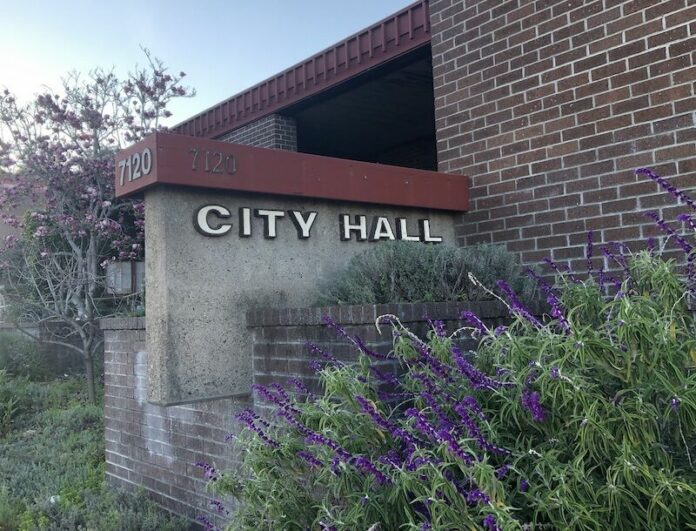A slideshow of the past year might begin with 5th District Supervisor Lynda Hopkins, sworn into her second term on Jan. 5. She stepped into her role as chair of the Sonoma County Board of Supervisors that day, before the Jan. 6 Capitol attack.
Hopkins said that while sometimes seven days feels like seven years, “I also feel that oftentimes in moments of crisis, that’s when our community really pulls together and united around a common vision and takes care of each other.”
She named her priorities of the year as escaping the grips of the pandemic and getting the county vaccinated, building a better-functioning government and strengthening equity and climate solutions.
That January, the City of Sebastopol invited a candidate back for interviews after the city’s first choice for a new police chief withdrew his candidacy two weeks before he was to assume the role in December. Sebastopol Mayor Una Glass announced on Jan. 19 that the former Sebastopol Inn serving as supportive housing for formerly homeless residents of the county had a new name: Elderberry Commons.
In February, an original top candidate Kevin Kilgore was appointed the Sebastopol Police Department’s (SPD) chief of police, ending the city’s year-plus-long search for a permanent leader since former police chief James Conner retired in late 2019.
That same month, the city received its projected housing unit target for the upcoming eight-year cycle of housing development. Planning Director Kari Svanstrom reported the Bay Area was tentatively assigned 441,176 housing units to make way for between 2023 and 2031. The Association of Bay Area Governments (ABAG) divides those assigned units across the region’s counties, she said.
Svanstrom said that while the numbers wouldn’t be finalized until the end of the year, Sebastopol received a drafted quota of 213 housing units ranging in affordability. Cities don’t typically build housing, but local governments are charged with zoning its land so enough housing can be built to meet their assigned housing need, she said.
The Sebastopol City Council also adopted the city’s mid-year operating budget adjustments for the 2020-21 fiscal year on Feb. 16, going over various funding requests across departments.
Glass said that while the budget had a deficit, she found the city had fortified its reserves since 2014 to around $7.5 million “for a rainy day,” which got Sebastopol through the first year of the pandemic. Preparing the budget for the next fiscal year would start in March. “We’re not broke, but we really need to be very prudent about where we go from here,” she said.
On March 2, the council unanimously approved a resolution to endorse and adopt the Climate-Safe California campaign goals, joining 700 other agencies, nonprofits and elected leaders pushing for greater state action on climate change.
When April rolled around, the Sebastopol City Council granted its community vitality consultant CoMission $20,000 ahead of its west county community needs summit. Craig Litwin, CoMission principal, CEO and former Sebastopol mayor, said the summit would feature panels of nonprofit and CBO representatives to discuss their resource needs directly with potential volunteers and service clubs with access to funding.
The funds would also go to maintaining the city’s business, community benefit organization (CBO) and service organization councils, he said.
In May, the council positioned to approve a citywide ban on fireworks, with the exception of one public display related to the Fourth of July, to decrease fire risk. The proposed ordinance to return for adoption later in May was asked to include banning the sale and use of fireworks, even state-approved “safe and sane” ones, SoCoNews reported.
CoMission’s Community Needs Summit took place on May 12, with panel discussions on food and housing, mental health and schools, the environment and community enrichment to encourage local engagement on such issues.
That month, Sebastopol set its water utilities program into motion to make water conservation upgrades more affordable under the drought.
The Water Upgrades $ave Sebastopol program would use a fixed on-bill charge so water customers could save water and money on conservation projects, like more efficient showerheads, toilets and aerators, with little if any upfront costs.
On June 17, Jerry Threet, the retired director and founder of the county’s Independent Office of Law Enforcement Review and Outreach (IOLERO) presented his independent civilian review of SPD to the council and the public.
Threet summarized a number of recommendations to improve the department’s practices, expressing hope for the future with Kilgore as its new police chief. He cited understaffing as a root problem influencing other issues, like training and community engagement. Different issues included a need for better accountability systems, internal affairs investigations, de-escalation and implicit bias training and more.
Mayor Glass requested that city staff prepare a final city budget for the fiscal year 2021-22 for the council to adopt towards the end of July. Councilmember Neysa Hinton addressed that the city was deficit-spending for the second year in a row.
Sebastopol was projected to spend around $1.2 million more than its anticipated revenue for the 2021-22 fiscal year, and the council agreed it wanted a municipal finance consultant to assess its reserve account allocations, asset management, and how the city could increase its revenue.
The council also reassigned $36,000 proposed for a CoMission work plan to funding for “Relaunch Sebastopol” marketing consultant services to liven up the local economy and discussed refocusing its community and economic vitality efforts.
On July 16, the City of Sebastopol issued a press release disclosing that two unrelated cyber breaches disabed SPD’s computer system and made off with $1.2 million from the city’s reserves in the county’s possession through a “fraudulent email request” and wire transfer.
The city teamed up with insurers, law enforcement and the county to try to recover the money.
City Manager and Attorney Larry McLaughlin stated the city shared the information out of transparency, since the council was about to take up a finalized budget to adopt on July 20 that would be impacted by the loss of $1.2 million.
In late July, the Sebastopol City Council agreed to take up a free trial run on the Open Policing app to rate police interactions. The police chief compared the platform to giving police Yelp Reviews, providing cards available in different languages for police staff to give community members who can then use a one-time code to rate their encounter, whether it was a traffic stop, phone or in-person interaction.
Between November and December, the council made swift, decisive movement to provide more stable shelter for those living in RVs on Morris Street. The city sought to establish a temporary RV village pilot program on city-owned property with Sonoma Applied Village Services (SAVS).
SAVS had $368,000 in funds from the Continuum of Care to set up a COVID-19 emergency shelter village for a year, expiring Dec. 8 if the organization couldn’t get the project confirmed in time. Despite significant opposition and the originally intended site falling through, the council managed to approve the program on Dec. 7 to be located at 845 Gravenstein Highway North, leased by St. Vincent de Paul Sonoma County.
After a jumbled election that involved Councilmember Sarah Glade Gurney coordinating her own removal as mayor, the Sebastopol City Council approved Patrick Slayter as mayor, despite his own objection, and Neysa Hinton as vice mayor.









